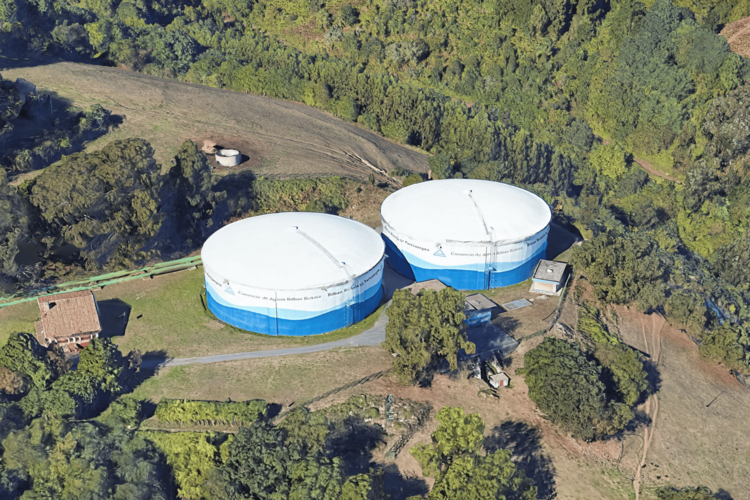Type of project: Secondary
Duration: 4 months
Maintaining an adequate chlorine concentration in supply networks is key to ensuring the microbiological quality of water up to the point of consumption. However, hydraulic and environmental conditions throughout the network can cause chlorine decay phenomena that compromise this health guarantee.
To delve deeper into this issue, CATABB has launched the research project CLORED IV, with the objective of analyzing the factors that influence chlorine loss in supply network reservoirs, through the study of historical data recorded in the SCADA system. This initiative continues the previous projects CLORED II and III, which already helped identify limitations in existing analysis tools.
CLORED IV will focus especially on establishing correlations between variables such as temperature, flow rate, or reservoir fill volume and the evolution of chlorine inside. To this end, the Florida reservoir will be selected as a reference case, as it has complete inflow and outflow flow and chlorine records, and new temperature probes will be installed at different points in the network.
Over the next four months, the project will address the following phases:
- Study of the hydraulic path of water to each selected reservoir.
- Analysis of variables such as reservoir level, retention times, turbidity, chlorine, and temperature.
- Processing and evaluation of SCADA historical data to establish cause-effect relationships between operational conditions and chlorine loss.
- Identification of possible improvements in the monitoring and control of the disinfection system.
CLORED IV will make it possible to expand technical knowledge about the behavior of chlorine in network reservoirs, which will facilitate the optimization of chlorination strategies, improvement of the quality of distributed water, and greater operational efficiency in the supply system.


